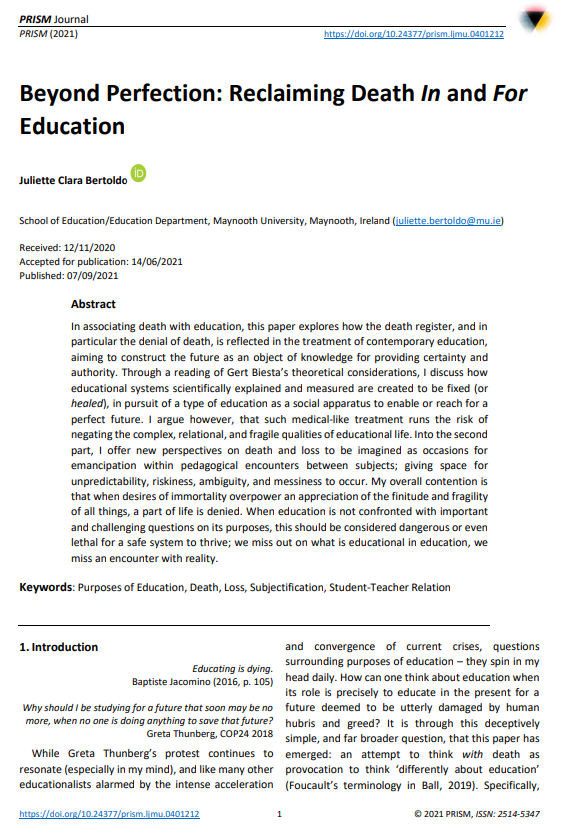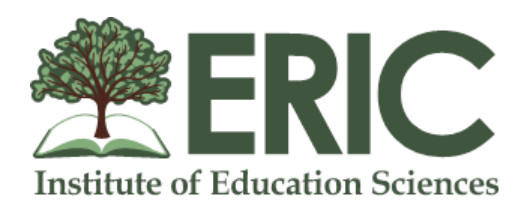Beyond perfection: Reclaiming death in and for education
DOI:
https://doi.org/10.24377/prism.ljmu.0401212Keywords:
Purposes of Education, death, loss, subjectification, student-teacher relationAbstract
In associating death with education, this paper explores how the death register, and in particular the denial of death, is reflected in the treatment of contemporary education, aiming to construct the future as an object of knowledge for providing certainty and authority. Through a reading of Gert Biesta’s theoretical considerations, I discuss how educational systems scientifically explained and measured are created to be fixed (or healed), in pursuit of a type of education as a social apparatus to enable or reach for a perfect future. I argue however, that such medical-like treatment runs the risk of negating the complex, relational, and fragile qualities of educational life. Into the second part, I offer new perspectives on death and loss to be imagined as occasions for emancipation within pedagogical encounters between subjects; giving space for unpredictability, riskiness, ambiguity, and messiness to occur. My overall contention is that when desires of immortality overpower an appreciation of the finitude and fragility of all things, a part of life is denied. When education is not confronted with important and challenging questions on its purposes, this should be considered dangerous or even lethal for a safe system to thrive; we miss out on what is educational in education, we miss an encounter with reality.
Downloads

Downloads
Published
Issue
Section
License
Authors retain copyright and grant the journal the right of first publication with the work.
The version of the article published as part of this issue is licensed under a Creative Commons Attribution-NonCommercial-NoDerivatives 4.0 International Licence and allows others to read, download, copy, distribute, print, search, link to the full text of the first version of this article, or to use it for any other lawful purpose in accordance with the license. The author maintains copyright for the article published in this journal.
This journal provides immediate open access to its content and has no submission or publication fees.



